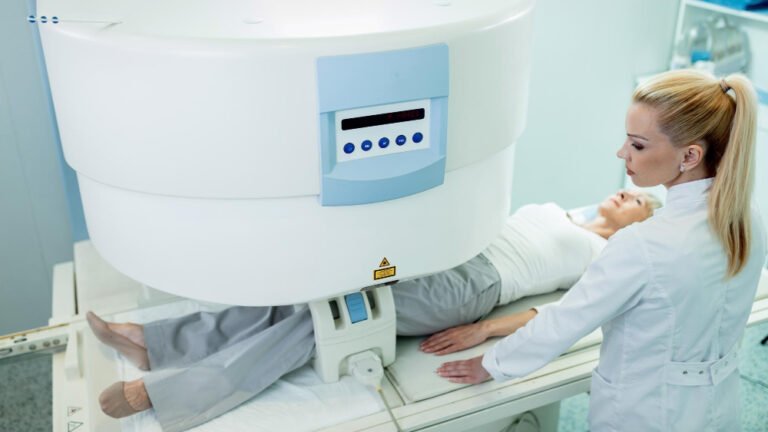Surgical Oncology: Pioneering Advances in Cancer Treatment.
Surgical oncology stands at the forefront of cancer treatment, offering patients hope and healing through innovative surgical techniques and multidisciplinary care. As a specialized field within oncology, surgical oncologists play a crucial role in the diagnosis, treatment, and management of cancer, employing surgical interventions to remove tumors, alleviate symptoms, and improve outcomes. In this article, we will explore the key principles, advancements, and impact of surgical oncology in the fight against cancer. Best Oncologist in Shalimar Bagh
Understanding Surgical Oncology
Surgical oncology is a subspecialty of surgery dedicated to the surgical management of cancer. Unlike other forms of cancer treatment such as chemotherapy or radiation therapy, which target cancer cells systemically, surgical oncology involves the physical removal of tumors and affected tissues through surgical procedures. Surgical oncologists are trained to perform a wide range of surgical interventions, from minimally invasive procedures to complex, multi-organ resections, depending on the type, stage, and location of the cancer.
Key Principles and Approaches
The practice of surgical oncology is guided by several key principles aimed at achieving optimal outcomes while minimizing risks and preserving the quality of life for patients. Some essential principles and approaches include:
- Multidisciplinary Collaboration: Surgical oncologists work closely with other specialists, including medical oncologists, radiation oncologists, pathologists, and radiologists, to develop comprehensive treatment plans tailored to each patient’s unique needs. Multidisciplinary collaboration ensures that patients receive the most effective and personalized care possible, integrating surgery with other modalities as needed.
- Precision and Individualized Care: Surgical oncologists employ precise surgical techniques and technologies to target tumors while minimizing damage to surrounding healthy tissues. Advances in imaging, navigation, and minimally invasive surgery have enabled surgeons to perform complex procedures with greater accuracy and fewer complications, leading to improved outcomes and faster recovery times.
- Oncoplastic Surgery: Oncoplastic surgery combines oncologic principles with plastic surgery techniques to achieve optimal cosmetic and functional outcomes following cancer surgery. By integrating reconstructive procedures with tumor removal, oncoplastic surgery helps restore the appearance and functionality of affected areas, enhancing patients’ quality of life and self-esteem. Best Oncologist in Shalimar Bagh
- Sentinel Lymph Node Biopsy: Sentinel lymph node biopsy is a minimally invasive procedure used to assess the spread of cancer to nearby lymph nodes. By identifying and sampling the sentinel lymph node, surgeons can determine the extent of lymph node involvement and tailor further treatment accordingly, reducing the need for extensive lymph node dissection and associated complications.
Advancements and Innovations:
Surgical oncology has witnessed significant advancements and innovations in recent years, driven by ongoing research, technological developments, and surgical techniques. Some notable advancements include:
- Minimally Invasive Surgery: Minimally invasive techniques, such as laparoscopy and robotic-assisted surgery, have revolutionized cancer surgery by enabling surgeons to perform complex procedures through small incisions with enhanced precision and dexterity. Minimally invasive approaches offer benefits such as shorter hospital stays, faster recovery times, and reduced postoperative pain for patients.
- Targeted Therapies: Targeted therapies, including molecularly targeted agents and immunotherapies, have expanded treatment options for patients with certain types of cancer. Surgical oncologists may incorporate targeted therapies into treatment plans to shrink tumors, improve surgical outcomes, and reduce the risk of recurrence, particularly in cases of advanced or metastatic disease.
- Image-Guided Surgery: Image-guided surgery utilizes advanced imaging technologies, such as intraoperative MRI, CT, or PET scans, to provide real-time visualization and guidance during surgery. By enhancing the accuracy of tumor localization and margin assessment, image-guided surgery helps ensure complete tumor removal while preserving critical structures and functions. Best Oncologist in Shalimar Bagh
Impact and Future Directions
Surgical oncology plays a central role in the multidisciplinary approach to cancer care, offering curative and palliative interventions that contribute to improved survival and quality of life for cancer patients. As the field continues to evolve, future directions in surgical oncology are focused on personalized medicine, precision surgery, and the integration of emerging technologies such as artificial intelligence and genomic profiling into clinical practice. By embracing innovation and collaboration, surgical oncologists are poised to make further strides in the fight against cancer, offering hope and healing to patients around the world. Best Oncologist in Shalimar Bagh
Conclusion:
Surgical oncology represents a cornerstone of cancer treatment, providing patients with access to life-saving surgical interventions and personalized care. Through a combination of precision surgery, multidisciplinary collaboration, and ongoing innovation, surgical oncologists strive to improve outcomes, minimize morbidity, and enhance the quality of life for individuals affected by cancer. As the field continues to advance, the future of surgical oncology holds promise for continued progress and innovation in the fight against cancer.Best Oncologist in Shalimar Bagh








